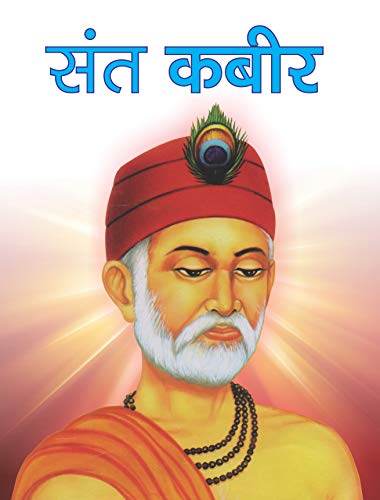“Moko Kahan Dhundhere Bande
Kabir Das
Mein To Tere Paas Mein
Na Teerath Mein, Na Moorat Mein
Na Ekant Niwas Mein”
English translation:
“Where do you search me?
Kabir Das
I am with you
Not in pilgrimage, nor in icons
Neither in solitudes”

Who was Kabir Das?
Kabir Das, a fifteenth century, was a poet, centered around Kashi. His message is identified with the Bhakti tradition of India. Also known as ‘Sant Kabir’, his poetry is timeless for Hindi literature, and the history of Hinduism.
He is said to have been born in 1440, and was brought up in a Muslim weaver’s family. He was a disciple of Guru Ramananda, and got his first lessons in spiritual thought for him.
Why do we remember Kabir?
He is revered by the Kabir-panths as a saint- a man of knowledge whose words have reached the hearts of common people. His followers are beyond religion or caste.
Kabir spread a message of unity and simple living. But his simple message as part of a larger movement, the Bhakti Movement.

How did Kabir influence the Bhakti Movement?
Kabir Das did not write his poems in Sanskrit. He wrote in Hindi. This marks the protest against the Brahmanical, caste society of the time, here Sanskrit was claimed the language of the elite clericals, especially priests.
Kabir was a believer of Nirguna, which believes that the divine being, or God has no definite form or name. He spoke of the God who can be reached not through chanting mantras or through mediation from Brahmhans, but directly through the soul.
His songs were sung by the common people of the region- and are still sung, today, in temples and by peasants, who wish to find God not in canons of religion and structures of caste, but through personal unision and love for the God.

Kabir’s message of Love
Much like the Sufi traditions, Kabir preached the message of love for the God. The Bhakti movement was accepted widely by the oppressed people of society. This was because he rejected the need for the Brahmanical ritual to find God.
On the other hand, Kabir spoke of communicating with God through spiritual oneness. One poem of Kabir that has the image of such love for God is:
“So drunk am I
(Sahdev Kumar, Communicating the Incommunicable)
with the presence of my Beloved
That all my ambivalence
is gone
Forever
0 Kabir
A potter’s bowl
Once baked in the fire
is not turned
On the wheel again”
Kabir’s message of Hindu-Muslim Unity
Kabir was born of Muslim parents, but grew up under guidance from the Hindu sadhu. In much of his works, he has criticized both Hindu and Muslim religious practices.
He was a preacher of a dharma which is beyond both religions. Especially beyond formal rituals which excluded the common people from various rights.
His vision of a greater, Nirguna divinity would attempt to break the tension between both religions. Most importantly, his idea of God was beyond boundaries and definitions.
Therefore his poems was a message for secularism, before hundreds of years. He tried to take elements from each religion and formulate the divinity that each common person could have an internal bond with.
The fascinating legend of Kabir’s deceased body…
It is said that after the death of Kabir, the Muslims and Hindus, both claimed the body, wanting to perform their religious rituals.
When the sheets were lifted, the body was not found. Instead, there were flowers. The petals of there flowers were distributed among all, as the spirit of Kabir spoke to them, telling them that he does not want to be constrained by any definite religion.
This legend, whether true or not, exemplifies the message of Kabir. His poems remain important to the culture of India, which is extreme multi-religious, and always needs a support system to uphold unity and acceptance.
Read More:













































